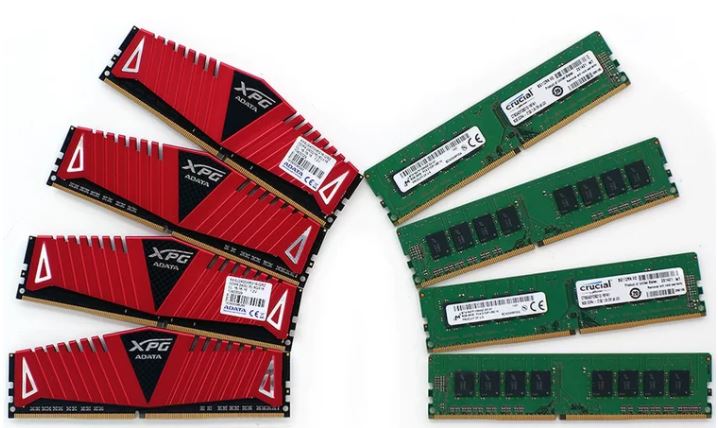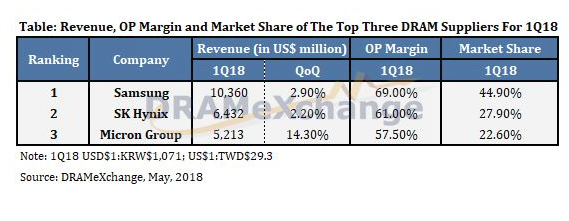China Meets With Micron Over DRAM Price Increases
It's certainly not news to enthusiasts that sky-high RAM pricing continues, but luckily government agencies and law firms are taking notice.
China is ratcheting up the pressure on DRAM vendors as the memory shortage, and resulting price hikes, continue. The country is also fostering its own domestic DRAM production to head off future supply shortages.
According to a new report from TrendForce's analyst outfit DRAMeXchange, Micron has met with China's Anti-Monopoly Bureau of Commerce to answer questions regarding the continued increase in DRAM pricing. These same concerns are at the heart of a looming class-action lawsuit from the U.S.-based Hagens Berman firm, which contends that the leading memory producers are engaging in DRAM price fixing.
China is the world's largest consumer of memory chips, currently absorbing roughly 20% of the world's NAND and DRAM, which it then turns into products that it primarily exports to the rest of the world. As such, the continuing price hikes for DRAM have a profound impact on many of its bread and butter segments, such as smartphone production.
China has taken notice of the other DRAM players, too. The Micron meetings come after China's meetings with Samsung in December, which was precipitated by requests from smartphone makers to investigate the company for monopolistic practices pertaining to memory pricing. Samsung later signed a new Memorandum of Agreement (MOU) with China, which finds the company investing and cooperating in developing next-gen technologies with the country. Many analysts have speculated the extension of the existing agreement, which had expired, was meant to assuage China's regulatory agencies.
According to DRAMeXchange, China's meetings with Samsung earlier this year should lead to some moderation in increasing prices for DRAM, and the country's intervention may result in increased production.
Micron is the smallest player in the DRAM market, accounting for 22.6% of global supply, while Samsung and SK Hynix both hold larger shares. There haven't been any reports of meetings with South Korean chipmaker SK Hynix, but given the current climate, we expect China will soon aim its pointed questions at that company, too.
Get Tom's Hardware's best news and in-depth reviews, straight to your inbox.
DRAM production is a capital- and time-intensive exercise, so it could be nearly a year before any changes to the dominant players’ production plans have an impact on inflated pricing.
Meanwhile, China's own domestic memory production is beginning to take flight. Fujian Jinhua Integrated Circuit Co. (JHICC) is one of the emerging Chinese memory producers. China is also concerned that Micron is blocking the supply of equipment to JHICC, which has been targeted by Micron in the past for infringing on its patents. Given the country's government-backed initiatives to bolster indigenous chip production, China is taking a keen interest in the dispute.
Most of China's domestic DRAM production is expected to be sold in-country, as it might not pass muster for the international market due to possible patent violations. As a result, we might not see some of the familiar Chinese tactics, such as price dumping in international markets. In either case, the government-backed production is expected to offset some of China's memory imports, which would eventually result in cheaper chips for everyone.

Paul Alcorn is the Editor-in-Chief for Tom's Hardware US. He also writes news and reviews on CPUs, storage, and enterprise hardware.
-
dudmont I trust China not-at-all. The whole country is a giant collection racket. These kinds of things will only harm consumers in other locations. If China were a truly open society and had transparent policies and the government was truly responsive to it's citizens, I'd be a little less jaundiced about this. As it is I don't trust my own government(US) much less one that has zero accountability to it's own people. Chinese people exist at the willingness of it's government, not the other way around.Reply -
hotaru251 Wouldnt be the first time China has tried to manipulate prices <.<Reply
and yeah i'd say 80% of governments are not trustworthy.
i will ofc cross fingers that by some miracle this lowers RAM prices. -
ElectrO_90 We know the companies are price gouging us all, because you just have to see their profits sore.Reply
If a company was being more honest (no matter which company it is) the profits reflect their contempt on the people. -
10tacle What's missing from this article is the fact that Samsung has invested $28 billion in a new semiconductor manufacturing facility right next door to their most recent built one which broke ground in 2015 to help close the gap on supply vs. demand needs in the future. It is nearly double the size of their other two fab plants combined. Both NAND and DRAM needs are expected to triple by 2025 compared to today. It's not price fixing. It's classic Econ 101 supply vs. demand any high school student understands (well from a quality school anyway).Reply
Most of that growth in demand is between smart phones and servers (servers for Clouds specifically, much of which is tied to smart phones and their cellular telecom providers in the first place as just about everyone backs up their smart phones these days on iPhone or Samsung cloud services). To put things into perspective, ten years ago PC DRAM needs were 7x more than server DRAM needs. Today, server DRAM needs are 2x more than PC DRAM needs (PC DRAM needs meaning both motherboard memory and GPU memory).
In any event, this new fab facility, which can quickly switch between NAND and DRAM production as market needs require, is expected to be online by the end of this year or early 2019.
With that said,
|
"Most of China's domestic DRAM production is expected to be sold in-country, as it might not pass muster for the international market due to possible patent violations. As a result, we might not see some of the familiar Chinese tactics, such as price dumping in international markets. In either case, the government-backed production is expected to offset some of China's memory imports, which would eventually result in cheaper chips for everyone."
I wouldn't trust a Chinese company made chip for all the tea in China, so to speak (yes, Samsung's new fab plant is in China, but Samsung runs it from an engineering level). No telling what kind of firmware China can deeply embed in them for western markets that can be triggered via operating system/service, especially the US. Recent case in point: https://www.cyberscoop.com/android-malware-china-huawei-zte-kryptowire-blu-products/ -
dudmont 10tacle, good answer. For me the whole thing is really simple. When it comes to governments, I don't have a choice, I have to buy their product(Which is why it's so expensive, the service is lousy, and all the other complaints). In short, they can use force to make me compliant. A business, on the other hand, will do everything, reasonable/possible, to get me to buy their product, because they don't have the option of force(in a properly run society that is). Notice I used the words reasonable and possible. Reasonable changes meaning in different circumstances too. A car dealer isn't going to sell me a car for a price that 12 other people are willing to pay more for, that would be unreasonable.Reply -
Onus "...but luckily government agencies and law firms are taking notice..."Reply
Historical evidence, I believe, suggests otherwise. The involvement in a productive activity by those who produce nothing of value is typically not a lucky occurrence. -
luckzeh Reply21001512 said:No telling what kind of firmware China can deeply embed in them for western markets that can be triggered via operating system/service, especially the US.
In the context of https://www.tomshardware.com/news/fbi-anti-encryption-legislation-false-data,37099.html , there aren't many world powers whose products you should trust. -
10tacle Reply21003404 said:In the context of https://www.tomshardware.com/news/fbi-anti-encryption-legislation-false-data,37099.html , there aren't many world powers whose products you should trust.
At the risk of going off topic, you think I don't know that? It's not like the FBI's leadership has a lot of public trust these days, especially considering what they've done to the current administration by operatives of the previous administration. Then there's the NSA who was exposed by Edward Snowden spying on not only Americans, but Europeans.
The past two decades definitely have not been a highlight of American leadership, values, and trust in said leadership. Oh wait. I don't think any government entity has EVER been trustworthy to uphold their oath of office to serve, protect, and defend. There's a reason Congress has a 12% approval rating. -
10tacle Reply21002768 said:" The involvement in a productive activity by those who produce nothing of value is typically not a lucky occurrence.
"Those who produce nothing of value..."
I could not have described it better when referring to how the British Parliament, EU, and US Congress give value. What amazes me is how so many people put so much faith and trust in said entities to have their best interests at heart. This thinking is not random. New generations are being indoctrinated in primary education and college to put faith in a central authority power and to not question it. Ever. They have become and are becoming useful idiots who cannot form a single individual thought for themselves. They have become collectivists in herd mentality. We truly are living the days of 1984. -
dudmont Reply21003995 said:21002768 said:" The involvement in a productive activity by those who produce nothing of value is typically not a lucky occurrence.
"Those who produce nothing of value..."
I could not have described it better when referring to how the British Parliament, EU, and US Congress give value. What amazes me is how so many people put so much faith and trust in said entities to have their best interests at heart. This thinking is not random. New generations are being indoctrinated in primary education and college to put faith in a central authority power and to not question it. Ever. They have become and are becoming useful idiots who cannot form a single individual thought for themselves. They have become collectivists in herd mentality. We truly are living the days of 1984.
Why do you think Bill Ayers and folks like him went into education field.

